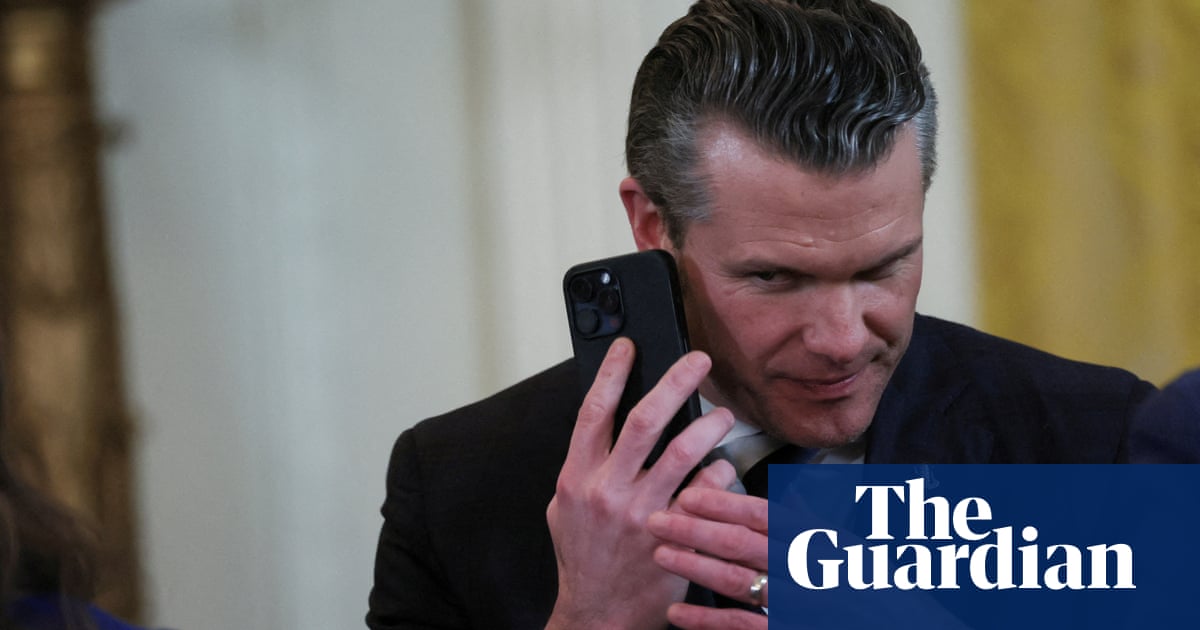Before the US launched military strikes onYemenin March,Pete Hegseth, the defense secretary, sent detailed information about the planned attacks to a private Signal group chat that he created himself, which included his wife, his brother and about a dozen other people,the New York Times reportedon Sunday.
The Guardian has independently confirmed the existence of Hegseth’s own private group chat.
According to unnamed sources familiar with the chat who spoke to the Times, Hegseth sent the private group of his personal associates some of the same information, including the flight schedules for the F/A-18 Hornets that would strike Houthi rebel targets in Yemen, that he also shared with another Signal group of top officials that was created by Mike Waltz, the national security adviser.
The existence of the Signal group chat created by Waltz, in whichdetailed attack plans were divulgedby Hegseth to other Trump administration officials on the private messaging app, wasmade public last monthby Jeffrey Goldberg of the Atlantic, who had been accidentally added to the group by Waltz.
The fact that Hegseth also shared the plans in a second Signal group chat, according to “people familiar with the matter” who spoke to the Times, is likely to add togrowing criticismof the former Fox weekend anchor’s ability to manage the Pentagon, a massive organization which operates in matters of life and death around the globe.
According to the Times, the private chat also included two senior advisers to Hegseth – Dan Caldwell and Darin Selnick – who were fired last week after being accused of leaking unauthorized information.
Hegseth haspreviously been criticizedfor including his wife, Jennifer, a former Fox News producer,in sensitive meetings with foreign leaders, including a discussion of the war in Ukraine with British military leaders. Phil Hegseth, the secretary’s younger brother, was hired as a senior Pentagon adviser and is the defense department’s liaison to the Department of Homeland Security. It is unclear why either would need to know about the details of strikes plans in advance.
According to the Times, Hegseth used his private phone, rather than a government device, to access the Signal chat with his family and friends.
CNNreported later on Sundaythat three sources familiar with Hegseth’s private Signal group confirmed to the broadcaster that he had used it to share Yemen attack plans before the strikes were launched.
A person familiar with the contents and those who received the messages, confirmed the second chat to the Associated Press ands said that it included 13 people.
Shortly after the news of the second Signal chat broke, Politico published an opinion article by Hegseth’s former press secretary, John Ullyot,who wrote: “It’s been a month of total chaos at the Pentagon. From leaks of sensitive operational plans to mass firings, the dysfunction is now a major distraction for the president – who deserves better from his senior leadership”.
